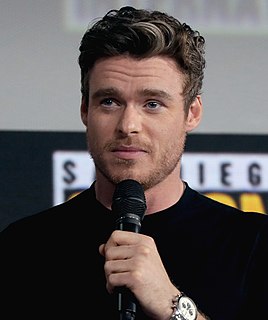A Quote by Noelle Stevenson
The good thing about doing a comic that's entirely my own voice as a debut is that people approached me with similar jobs, with stuff that they knew that I could do justice to because they had read what I'd already done. It meant that I was getting jobs that I was actually interested in, and I didn't have to prove myself on someone else's property.
Related Quotes
I was very conscious of the film industry - a lot of people, neighbors, worked in it. I actually grew up doing a bit of extra work myself. I was homeschooled, and it was a way that I could make money. My parents let us do these jobs, and I never got very far, but I was much more interested in what everybody else was doing, and I liked being on set.
A lot of people describe me as an electronic producer, but I actually wouldn't have described myself that way until maybe three months ago when I felt I was getting some really good production jobs with very good people. I would have always said, I'm a singer. I think the album brings the voice to the front, and makes that clear.
I was 27 when I uploaded my first YouTube video. I had a master's degree and was running a small business. I had had good jobs and bad jobs and was fairly secure in my identity and understood who I was. When my audience or the algorithm wanted me to be something, I knew with a fair amount of certainty whether I wanted to be that thing or not.
The idea that you won't have a job is a real fear that people go through, so when people talk about jobs and say, 'I'm gonna create jobs!' or, 'There's gonna be a loss of jobs,' those are just words. But the reality of someone actually losing their job - I mean, it's their entire life for most people in this country.
There was a long time in my professional life that I was not happy, and there was nothing anyone else could have done to make me happy. There was a big stretch where I was very sick, and I was very hurt. Those charged with taking care of my health and well-being weren't very good at their jobs. Or maybe they were too good at their jobs.
Choose something that you're passionate about. So for me, that's creating jobs for women who don't have a voice. I would like to be their voice until they're strong enough and on their feet to have their own and really be heard. The way that I can do that is not necessarily by hand-outs, because my hand-outs wouldn't be great enough to really affect change. It's by providing jobs.








































